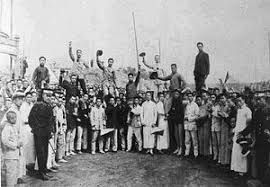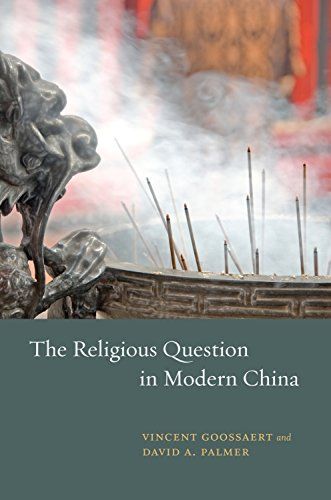
自由寫作者、占星和榮格精神分析愛好者
Day 4--May Fourth spirit in my heart

In order to write this article about the spirit of the May Fourth Movement, I searched the Internet for relevant historical materials, and also checked the impact of the May Fourth Movement in 1919 on the development of religious beliefs in China in "Religious Issues in Modern China" . In the early 20th century, many social reformers wanted to separate religion from politics and eradicate customs and superstitions, according to research by the authors, Zong Shu, a religious anthropologist at the University of Hong Kong, and Gao Wansang, a historian.

The intellectuals who participated in the movement also had their own religious and spiritual beliefs, including Liang Qichao and Zhang Taiyuan who led the Buddhist revival, Sun Yat-sen and the Kuomintang leaders who believed in Christianity, and Kang Youwei who conceived of how Confucian ideas could become the ideological system of the new China. The relatively extreme voices in the May Fourth Movement expressed the need to comprehensively eradicate feudal superstition, eradicate the traditional Chinese religious system, and abolish Chinese Confucianism. The May 4th Movement represented Confucianism as the intellectual tradition of the whole of China, thus creating a general misconception of "Confucian China". Zong Shuren wrote that the intellectuals of the May Fourth Movement rejected traditional Chinese customs and lifestyles out of their love for China, and they saw traditional Chinese culture and religious habits as obstacles to China's future development.
I found an interesting phenomenon while searching for information on the Internet. Baidu and Wikipedia describe the main core of the May Fourth Movement as the fact that the unequal treaty between the Versailles and China after the end of the First World War caused students to take to the streets and even the movement "directly influenced the birth of the Chinese Communist Party." The Oxford University historical documents stated that more and more scholars questioned the representativeness of the May Fourth Movement in modern Chinese history, and pointed out that the issues raised by the May Fourth Movement developed trends before and after the movement.
Columbia University's Asia Center has created an original document of modern Chinese history for teachers and students to read and explore. In the May 4th Movement (New Culture Movement) entry, the articles and speeches written by Hu Shi, Chiang Kai-shek and Chen Duxiu were translated into English. These articles generally point out the contrast between Chinese and Western cultures, religions, and politics, and reflect on Chinese culture. The main criticism is that traditional Chinese thinking makes people lazy, ignorant, content with the status quo, and lacks the initiative of Western reforms. When I read this, I found that the reason for the May Fourth Cultural Movement was definitely beyond the patriotic movement for unequal treaties. The May Fourth Cultural Movement was to imagine what a new China would look like.
Yesterday I had no idea about the May 4th Movement, but today I read some materials and educated myself, and found that I am still very interested in history and I have gained something. Today's overwhelming information can easily make people unable to concentrate and understand one thing in depth, which also symbolizes the "era of lack of depth". Deep reading and focused thinking may change our current situation. After writing this note, I seem to have found the answer. The May Fourth spirit in my heart is uncompromising thinking and questioning.
Like my work?
Don't forget to support or like, so I know you are with me..
Comment…